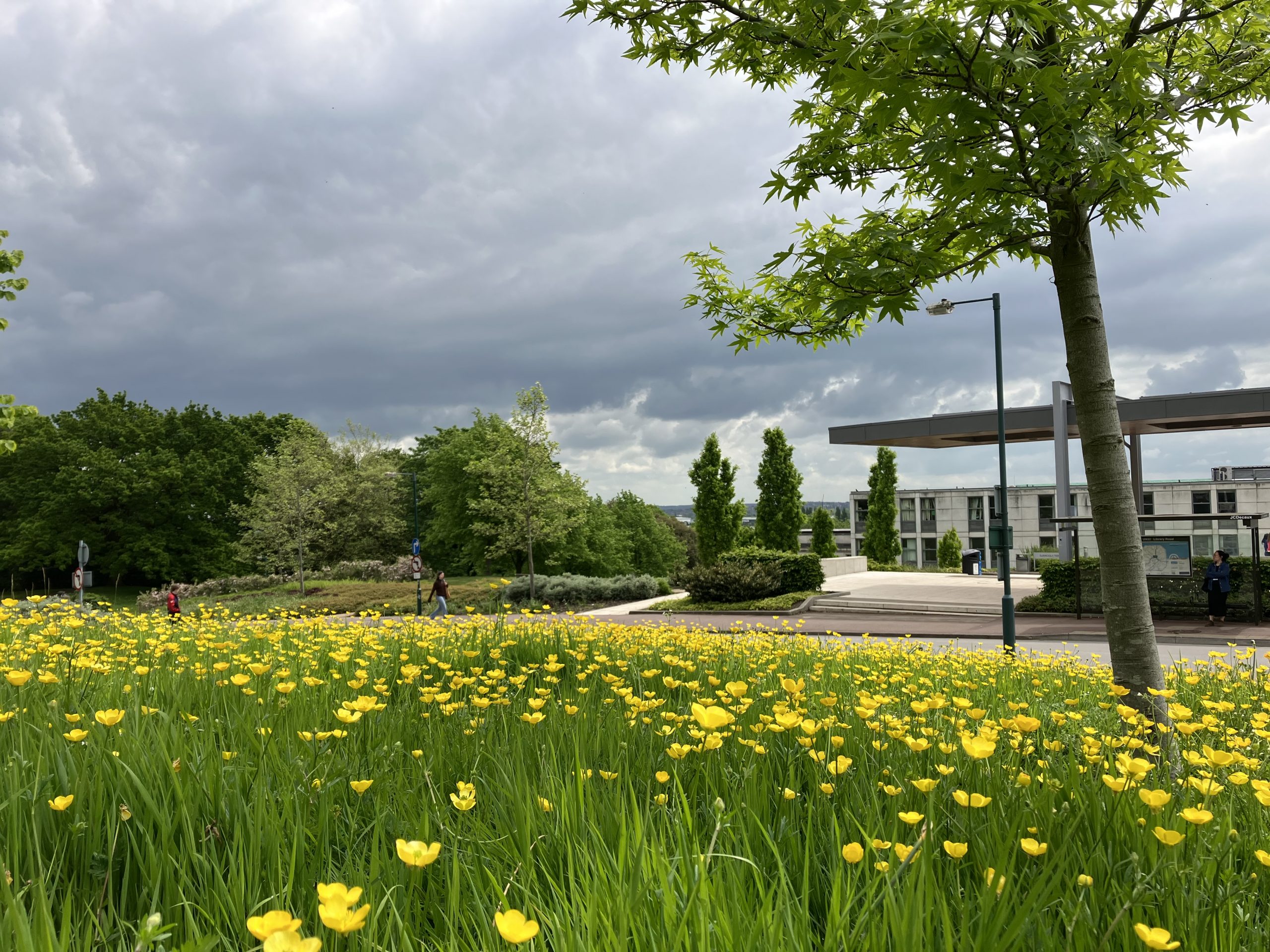
August 10, 2023, by sustainablenottingham
Becoming a ‘nature positive’ university
Nature is disappearing at an alarming rate around the world, from the Brazilian rainforests to the insects of the British Isles. But there are global plans to reverse this and the university has a part to play.
The nature crisis
Nature gives us food, medicines, resources, the air we breathe, not to mention the positive role it plays in our mental health and wellbeing. When nature thrives, we thrive, and it’s health provides stability and liveable conditions.
You may not realise it, but England is one of the most nature-depleted countries in the world. This comes after decades (nay, centuries) of land being converted for farming, quarrying and industry, pollution, pesticide use, mistreatment of waterways. The list goes on. Damaged ecosystems exacerbate climate change, and a changing climate is contributing to wildlife and habitat losses. The destruction of nature is the greatest threats humans face.
The good news
At the UN’s Biodiversity summit in December 2022, ‘Nature positive’ became a global goal. Countries agreed to halt and reverse the decline in nature and biodiversity. This means that by 2030, there will be more nature than there was in 2020, with ecosystems fully recovered by 2050. In the UK, the Environment Act requires every area in England to produce a plan for nature.
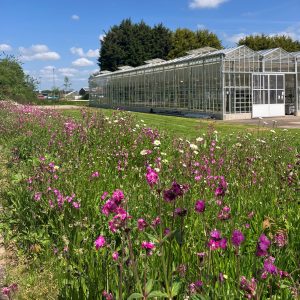
Wildflowers sown across Sutton Bonington campus
What is a Nature Positive University?
At the same time last year, the university became a founding member of the Nature Positive University Alliance. This initiative, co-led by the UN Environment Programme and the University of Oxford, is driving the world’s higher education sector towards a nature-positive future. By pledging to become a Nature Positive University, Nottingham has committed to:
- REDUCING negative impacts on nature
- RESTORING species and habitats
- RENEWING ecosystems
From wildflowers to wetlands
Right now, the university is establishing a baseline to enable us to develop meaningful targets that benefit and increase the nature on our campuses. Nevertheless, we are already taking practical action. Each year we participate in No Mow May and leave areas to grow wild; long grasses and wildflowers provide wildlife habits and food sources. During July we created more new habitats on University Park.
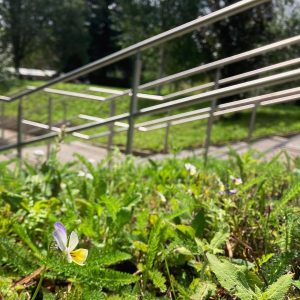
Wildflower turf at Monica Partridge will provide flowers for wildlife and people to enjoy
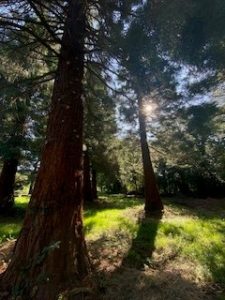
Wetland habitats on UP
A wetland environment is being created between Cut Through Lane and Beeston Lane. We’ve enhanced pre-existing depressions in the ground to capture water and planted them up with marsh and water loving plants. Once established, this will give a valuable home to a variety of wildlife, whilst several hibernaculas will provide underground chambers for amphibians and reptiles to overwinter.
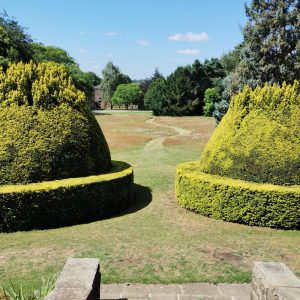
Creation of a wildflower meadow at Lenton Hurst House continues
More bug hotels are being installed with at least one on each of our main UK campuses.
We’ve also secured funding from Severn Trent Water to improve wildlife habitats at Riverside Sports Complex and increase the native hedgerow that was planted by students and sports clubs last December.
Want to get involved?
There’s a lot going on at the university and staff and students are always welcome to help. Join hands-on conservation sessions with the university Grounds Team and the Student Conservation Society on Wednesday afternoons during term time. Take some time outside whilst helping our local wildlife.
More good news is that there is no shortage of things you can do for nature.
Things to do at home
Garden with wildlife in mind. Lock up your mower and leave you lawn to grow a little wilder. You might be surprised what flowers appear; daisies, clover, buttercups are all valuable foraging for insects and pollinators. Even just reducing the frequency of your mowing can make a huge difference.
Go a little further and leave a corner of your garden to go completely wild or consider creating bug friendly habitats. The Nottinghamshire Wildlife Trust has lots of great ideas to encourage nature into your outdoor space.
Take part in citizen science
- Bugs Matter – count the bug splats on your number plate (until 31 August)
- UK Pollinator Monitoring Scheme
- National Plant Monitoring Scheme
- Count walruses from space – WWF
Report the wildlife you spot
Sign a petition or two
- Ban insect killing pesticides – Greenpeace
- Ask political leaders to make 5 General Election pledges to save nature – Nature 2030
- Protect our living legends (trees!) – Woodland Trust
- Global deal for nature
No comments yet, fill out a comment to be the first

Leave a Reply